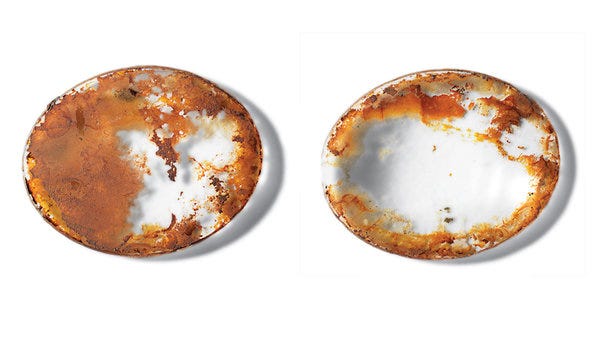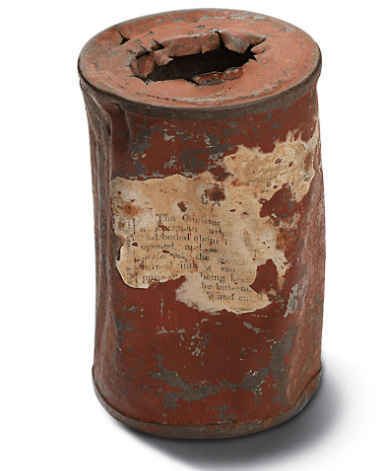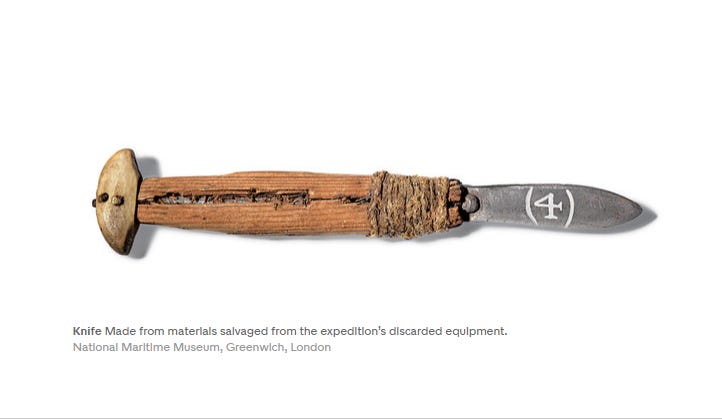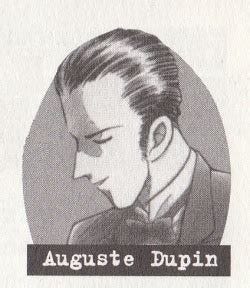Poe at the Pole
Method in Madness: A perspective on "terror"
The previous post gave an introduction to the themes this space is designed to explore; arctic exploration being the chosen vehicle by which to demonstrate the surprising conjunctions of “science” and “sorcery” throughout time and space both. Juxtaposition of those two seemingly opposite poles of human endeavor will bring up a rather startling similarity in goals and methods, when our chosen focus has been suitably explored.
The choice of arctic venue is perhaps due to several advantages such a landscape offers. The very starkness of the surroundings in which any human activity must take place affords a certain clarity of vision to the investigator wishing to shed light upon a phenomena common to all human societies through the ages. Additionally, the chosen timeframe - mid C19th century - and protagonists - England’s naval explorers & high arctic indigenes -

puts the study in high relief. A moment wherein the first applications of Victorian-era scientific knowledge to the fields of geography, geology, and navigation has met with the stark necessities of know-how intrinsic to survival in such bleak environs. Were the context not one of supreme horror - human fragility and incapacity in the face of the terrors of nature - the results would be extremely comic.
Searchers for the missing Franklin Expedition traded with Eskimos for artifacts like a pocket chronometer case, compass, the commander’s Guelphic Order of Hanover medal, forks & spoons embossed with the initials or crests of his officers. The Eskimos ‘re-purposed’ wooden and metal parts of the expeditions’ boats and equipment in a variety of ways which serve to support the primacy of supposedly “primitive” ‘magical thinking’ over “modern” ‘reason’ & ‘techne.’
Suitably jarred out of our acquired assumptions by these contrasts, we can now begin to study the territory - the crime scene, as I propose to identify it - with the aid of a very different lens from that which is commonly applied to the matter of FRANKLIN’S TRIP.

While Edgar Allan Poe is a ‘household name’ in the popular culture of the western world, the extent and variety of his literary accomplishments - outside the genre of ‘horror novels’ and ‘gothic themes’ - remains almost unknown. His interest in science in general, and cosmology in particular, has given some to ponder whether he actually anticipated the discoveries of Einstein, and indeed, “is one of the greatest and most important inspirers and founders of modern science.”
I’ll be providing some links to the background of the man’s output in that field, for those who are interested in digging deeper. But for now what I wish to focus on are the productions from Poe’s pen which uniquely mix totally irrational - yet accurate - predictions and foretelling of events in ‘the real world’ with rational yet fanciful ‘fictive’ works that push past the boundaries assigned to human speculation!
Poe’s imaginative genius and extended interests are so relevant to this examination of a polar mystery that it would not be hyperbolic to name him as the guiding force behind it’s existence. To begin within, to him I owe the application of a methodology which has brought me to a point of being able to claim a “solution” to the FRANKLIN MYSTERY. Having learned to regard all the claimed ‘achievements’ and “settled facts” of modern science with suitably skeptical gaze, I have had no compunction whatsoever about adopting Poe’s “fictional” character - the Parisian detective C. Augustin Dupin as my avatar and inspiration.
How, it may well be asked, can a character out of a work of imaginative fiction from the C19th be fashioned into a guide and mentor for a serious investigation into a “real life” crime scene? In stories such as MURDER IN THE RUE MORGUE, Dupin is given the metier of puzzle solver, going over the same ground which has stumped the usual parties who are tasked with the work of solving a murder or crime.
There have been several studies into the actual nature of the methodology Poe/Dupin employs. All of them intersect with Poe’s notion of “ratiocination” -
“Ratiocination is not listed in most dictionaries; however, it may be defined by deconstructing its syllables and associating it with other related words. A ratio compares the relationships between two quantities. Poe develops a new system for establishing relationships between unknown events and the motives or solutions to complex problems.” - Edgar Allan Poe and Science: Unraveling the Plot of the Universe Murray S. Ellison
It needs be remembered that Poe’s “Tales of Ratiocination” represent but a phase of his enormous output; all the more interesting to our quest is that this phase was conducted through the period 1840 - 1844, ending just at the point where - at the peak of British Imperial self-confidence - the Franklin Mystery begins! The world was a different place (for Englishmen) after that epic failure which ensues. And Poe was a different man. His enthusiasm for detached analysis becomes leavened by doubts as to it’s encompassing ability to ‘solve’ anything vital.
His later phase of literary activity, culminating in the grand cosmogonica of “Eureka,” unleashes the newer arrows in his quiver, designed to make up for the disappointments of past over-dependence upon the reasoned and rational:
“We have attained a point where only Intuition can aid us: …. It is but the conviction arising from those inductions or deductions of which the processes are so shadowy as to escape our consciousness, elude our reason, or defy our capacity of expression…”
yet the detached musings of Dupin would be the natural partner of this intuitive faculty which Poe only too late would begin to accord sufficient importance to. Had he remained free of the deep depression which gradually overcame his hopes of finding a way out from the terror of “the Conqueror Worm” he might have returned to his detective with renewed enthusiasm - recasting him as the protagonist of his own struggle to advance ‘science’ by means of ‘the supra-rational!’
Acknowledging Poe’s ‘fictional’ Parisian detective as avatar and inspiration for this quest comes with the requirement to - like he himself - “fade out” from the proceedings. “He” - POE - being DUPIN for the phase of his life involving the TALES OF RATIOCINATION, and likewise DUPIN representing POE, must renounce his character in order to move forwards; questioning the limits of the reasoning faculty means ditching Dupin’s method of crime solving. But this in itself simply leads to more recrimination; a double bind which for Poe resulted in self-destructive inclinations leading nowhere else than death.
Poe’s essay on cosmology - EUREKA - represented the pinnacle of his life’s achievements, in his own mind. That it was largely ignored and/or denigrated in that lifetime gives us the clue to why Poe’s own life played out as it did. In the following post I propose to examine the clear connection between the curious title of the essay which Poe considered to be his most important work… and the rush towards the pole.
The wide variety of interests Poe’s febrile intellect encompassed required him to find a way out of the artificial wall between ‘facts’ and ‘fictions;’ his work as a journalist required adherence to the former. His productions of short story and novels required him to leave behind the consensus definitions implied by both terms, so as to explore the imaginative possibilities of science meeting the ‘unexplained.’ Like his character in PIT & PENDULUM, strapped down beneath the swinging death above, he strove to release those bounds, so as to break free into the creative dimensions his genius demanded.
Poe’s fictional Detective C. Auguste Dupin expands the use of accepted nineteenth-century classical investigation techniques and adds hyper-observation and intuitive leaps of imagination to arrive at new solutions. He understands that clues and events are not always understood simply by the way that they appear. He approaches crime solving in the same way as he solves puzzles. With the same understanding of the evidence that the police hold, he provides new metaphoric solutions. His methods of unraveling crimes are unorthodox and appear to the police as irrational. Murray Ellison Poe and 19th-Century Science
Just as my method of looking for the solution to the FRANKLIN MYSTERY will provoke the claim that it violates the required respect for the application of ‘rationally-derived’ knowledge to the affair, so Poe’s investigations into the limits of science and the rational mind were to cause a severe truncation of the impact his creative genius was to have on the society of his day. Altogether forgotten now, his achievements in the fields of science and cosmology were ‘canceled’ due to his refusal to conform to the accepted limits of ‘methodology.’ He had to be known as a writer of ‘fiction’ or a purveyor of ‘fact.’ No fluidity between those two roles was allowable.
I suffer no qualms about utilizing the ratiocinative method, and the consequences that ensue. One of the most productive possibilities which bringing the CORONA project & the FRANKLIN mystery into parallel view provides is to showcase the absolute ABUSE and CONTEMPT for ‘facts’ which the “science” employed to manufacture consent involves. No different than Dupin in his relationship to the officials ‘in control’ of crime investigations, I propose to - if & when necessary - show the consensus narrative which guides investigation into the FRANKLIN TRIP to be an intended impediment to the achievement of a solution.
He focuses on unexplained deviations from the normal, anticipates the actions and thoughts of his associates and opponents, and embraces information that, at first, appears to be external to the case. Each Dupin story is a self-contained armchair mystery, in that he seldom needs to leave his home to solve the crime. - Murray Ellison Poe and 19th-Century Science
In his three tales of ratiocination, Poe demonstrates that Dupin’s methods of combining scientific reasoning with intuition are superior to those of the police. He is critical of the established authorities and power structures. The police are symbols for his criticisms of the professional scientists and the nineteenth century. He believes that scientists are limited in arriving at new solutions in the same ways that the police are limited in solving crimes. Murray Ellison Poe and 19th-Century Science
Furthermore, where necessary, I will apply the same method of ratiocination to establish the connected motives involved in LIMITING THE SCOPE OF DEBATE about:
a)the CORONA project & ensuing mass genetic experimentation imperium - and
b) forecasting the probable means by which a solution to the FRANKLIN mystery will finally be found.
But… I hasten to add - only if & when necessary - as I much prefer to stay focused upon the story itself, rather than be detained by sideshow debate designed to misdirect discussion from the main purpose. If the quote below does not seem evocative of the very moment we find ourselves in presently
Among the ideas that Poe attacked in his detective stories was the irrational belief that man could ultimately attain near stages of perfection, and that he could control his environment by scientific methods. Because of these contradictory views, it is hard to determine if Poe proposed ratiocination to address crime, or if he was mocking the irrational faith that the Age of Reason thinkers had in science. Murray Ellison Poe and 19th-Century Science
wherein persons of dubious sanity and intent, wearing white coats as a kind of priestly vestment, play at performing the roles of both CREATOR and ADJUDICATOR of what humanity consists of or must become…
it’s unlikely you will find much on these pages to warrant continued interest.
Of note, it is claimed that Poe himself was a ‘poster boy’ for madness & depression, traits hardly conducive to claiming a place in the hallowed halls of ‘scientific achievement’ -
"Poe was suspected to have suffered bipolar disorder in the form of severe depression. He took to drinking while working for Southern Literacy Messenger, for which he was sacked. His drinking also intensified during the illness of his wife. He disassociated himself from other writers and accused them of plagiarizing his work.”
However, for all the validity of including his character under the rubric of typical ‘destructive genius’ I should like to point out that the limitations the society around him placed upon a man who’s scope of brilliance led him to be able to write works of “fiction” which accurately anticipated - to exacting degree - events which would take place in the “real world” over a decade later…
were such that even the most sane of men could be supposed susceptible to the consequences of failing to bridle their creative genius to the degree necessary to find a place in that same society. Poe was unable to resolve the paradox which he himself had purposely highlighted in his own works; his decreasing faith in the Victorian era’s cult of reason shows up in his eroding faith in his detective characters’ ability to truly “solve” a mystery. Exegesis of his TALES OF RATIOCINATION stories shows this chipping away at the Dupinesque mystique through parody, irony and vacillation.
Unfortunately, the implicit therapeutic value of transposing this critique of both self and society onto his ‘fictional’ character Dupin was not translatable into catharsis and regeneration for the author. To whatever degree the analysis of Poe’s gradual DESCENT into THE MAELSTROM OF “MADNESS” was a correct one, nevertheless that psychotic state would co-habit with an ascended level of genius for the final phase of his life’s production.
The key insight from Ellison’s quoted passage above-
“Because of these contradictory views, it is hard to determine if Poe proposed ratiocination to address crime, or if he was mocking the irrational faith that the Age of Reason thinkers had in science.”
reveals the tension which remained unresolved in Poe’s lifetime. Poe’s earlier, more famous phase of work - the “horror” stories produced in the 1830’s - reveal a compulsive fascination with “revivification” - the arising from death - with it’s parallel emotions of repulsion and desire. Was Dupin’s crime-solving tool of “ratiocination” deserving of burial and repudiation… or of a ‘revivification’ with which to revisit territories of death, decay & madness? Next outing we will follow up on that question
It is my belief that Poe only latterly realized the implicit contradiction between his earlier faith in science, reason, & intellect and his gradual adherence to the faculty of intuition as guiding force for any uncovering of ‘truth.’ Putting paid to Dupin was an expedient for attempted resolution to his dilemma, but in fact it failed to resolve that struggle. The result of that failure was tragedy - in the mold of what was to transpire in the far north parallel to his own ‘descent!’
It is generally assumed that the men of the FRANKLIN EXPEDITION succumbed to states of madness and/or dementia before their expiries, due to medical conditions which have been ascribed to varying causes by those interpreting the slender evidence available. The perspective I will employ on these pages similarly enjoins the diagnosis of madness, however it’s causes will be attributed to factors other than those previously proposed.
Presentation of that perspective will almost completely conform to the rational and ‘scientific’ terms commonly applied to this case and others like it. I make that claim in full acknowledgement that the site’s title - “death & sorcery in the high arctic” - would seem to rule out any such conformity. But that in fact should be seen as the necessary frisson which will guide the presentations development Tis my task to show how ‘science’ has become nothing but the ‘flip side’ of sorcery; and it’s a task I relish!
My conclusions will be based upon known and recognized ‘events’ and circumstances acknowledged universally to have happened in the ‘real world.’ That said, I’m sure that the interpretation applied to those events will fail to conform to the unspoken limits of speculation also ‘universally’ accepted.
All of what is to say - if you are one who enjoys being confronted by methodologies and interpretations at odds with those commonly employed, you will probably find something of interest in what I write about here. If otherwise, it is more than likely you will be infuriated and/or at a loss to understand. I welcome all efforts to dispute, correct, or seek clarification - all that are delivered in decorous and measured manner that is. My long distance interactions with western peoples over the past few years have shown there to be a steady and disturbing decline in those qualities in ‘on line’ formats. With that decline, and the accompanying increase in vitriolic substitution for informed and good-natured debate… has come a decrease in my own interest in pursuing the promise which the internet seemed to initially present -
the chance for interactions which could lead to collective and collegial solutions to actual ‘real world’ dilemmas such as those which confront us all now. Indeed, I’m quite certain that it’s the forlorn hope of that same elusive promise being fulfilled which has caused me to finally enter the online FRANKLIN MYSTERY demi-monde.,, some half a century after my own FRANKLIN TRIP began.






